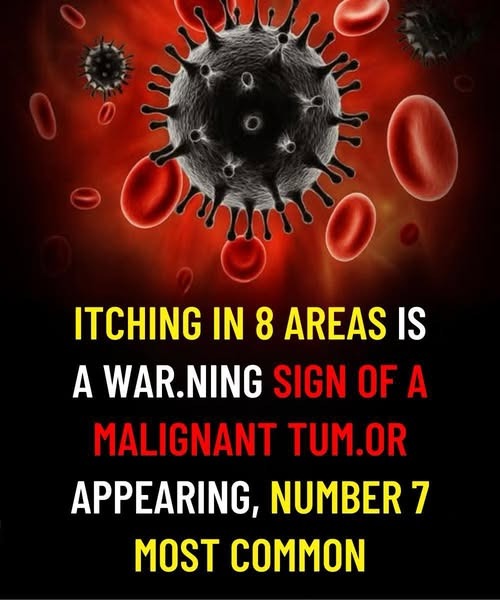People typically think of itching as a little irritation, but if it keeps happening and you don’t know why, it could be an indication of a more serious problem. Our bodies are more likely to get chronic diseases as we get older, and changes in our skin can be an early warning sign. Itching in some places and in certain ways can be a sign of more serious problems, such as cancer or diabetes.
For instance, itchy eyes could be a sign of liver disorders, especially if they are also yellow or tired. The liver is very important for getting rid of toxins. If it isn’t working right, these toxins can build up and cause inflammation. Also, if you have a chronic itch deep inside your nose and you also have nosebleeds or inexplicable congestion, it could be a sign of nasal or sinus cancer.
Itching on the neck without a rash could be an early indicator of lymphoma, and itching on the stomach could be a sign of diabetes. High blood sugar levels can make skin dry, hinder circulation, and hurt nerves, which can cause long-term pain. If you have genital itching that won’t go away and doesn’t react to treatment, it could be a sign of gynaecological malignancies, especially in women who have already gone through menopause.
If your palms and soles are itchy and get worse at night without a rash, it could be a sign of liver or pancreatic cancer because of a buildup of bile or toxins. If your chest skin is itchy, it could be a sign of inflammatory breast cancer. This type of cancer may not show up as a lump, but as dimpling or warmth on the skin. Lastly, moles that are itchy, change shape, or bleed could be indicators of melanoma.
Don’t overlook persistent itching, especially in specific regions. If your symptoms linger longer than two weeks or get worse, see a doctor. Your skin may be trying to tell you something more serious, and finding it early can make a big difference in how you treat it and how it turns out [1].


